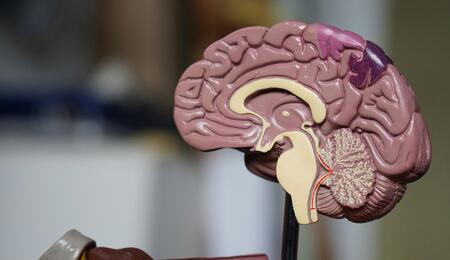Cannabis May Have Anti-Ageing Properties

Findings published in the journal ACS Pharmacology & Translation Science. reveal exciting new possibilities concerning THC. An experiment carried out by Investigators from the University of Bonn and a team from Hebrew University in Israel has shown that in animal studies low-dose, long-term treatment with cannabis may be able to reverse the ageing processes in the brain and also have anti-ageing effects.
The protein switch mTOR [Mechanistic Target of Rapamycin] is the foundation of this and is the epicentre for cell development and metabolism, impacting mental performance and metabolic bodily functions.
Details about the availability or absence of resources are vital for metabolism regulation. The metabolome is an intricate response network that summarises all metabolic effects of a cell or tissue. As a sensitive intracellular energy detector system, its action has a huge impact on ageing by controlling cell metabolism.
A decrease in mTOR activity via a low-calorie diet, intensive bodily activity or pharmacological medicine consequentlyhas a broad anti-ageing effect. Nevertheless, ageing of the brain is also chaperoned by a diminished capacity to modify neuronal associations, known as synaptic plasticity.
A drop in mTOR activity may additionally damage the ageing brain as it will reduce the creation of new synapses on a nerve cell and consequently, mental capabilities.
How does cannabis reverse the brain's ageing process?
In a previous study, researchers were able to demonstrate that long-term, low doses of THC have an anti-ageing influence on the brain by repairing cognitive abilities and synapse density in the case of ageing mice.
But whether or not shifts in mTOR signalling and the metabolome are connected to the positive results on the ageing brain has remained an unanswered question.
“We have now been able to show that treatment with THC has a tissue-dependent and dual effect on mTOR signalling and the metabolome,” Dr Andras Bilkei-Gorzo, Institute of Molecular Psychiatry.
THC treatment in the brain resulted in a temporary increase in mTOR activity and levels of intermediates involved in energy production and amino acids. This allowed for increased synthesis of synaptic proteins and the creation of new synapses.
“It was concluded that long-term THC treatment initially has a cognition-enhancing effect by increasing energy and synaptic protein production in the brain, followed by an anti-ageing effect by decreasing mTOR activity and metabolic processes in the periphery. The study shows that The study shows THC could be the basis for an effective anti-ageing and cognition-enhancing drug.” - Bilkei-Gorzo.
More From Soft Secrets:







